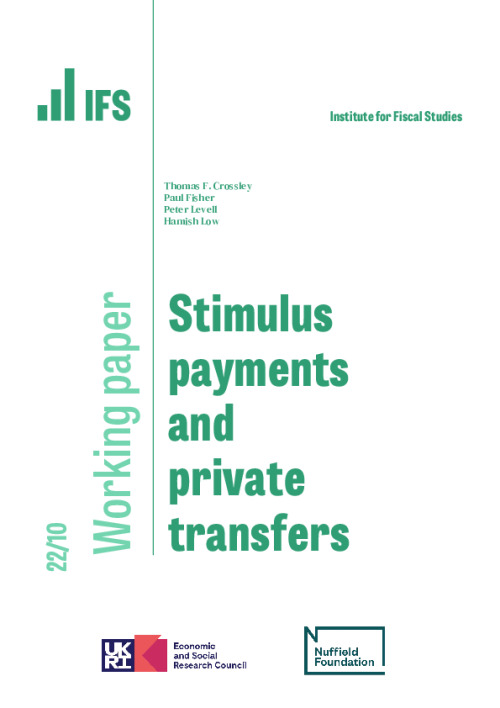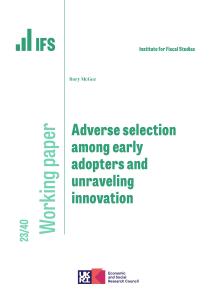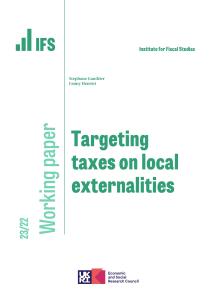Downloads

WP202210-Stimulus-payments-and-private-transfers.pdf
PDF | 345.42 KB
Private transfers can affect the spending response to stimulus payments, as those receiving income windfalls may transfer resources to other households in greater financial need. We report a survey experiment where individuals were asked how they would respond to a £500 payment, with a randomly selected subset of individuals explicitly told that all households would receive the same payments (a ‘public windfall’ scenario). This additional information increased MPCs by 11%. Reported transfer intentions in response to windfalls suggest that public payments crowd out private transfers, partly accounting for the higher MPCs in the public windfall case.
Authors

Research Fellow University of Oxford
Hamish is the James Meade Professor of Economics at the University of Oxford, a Professorial Fellow of Nuffield College and a Research Fellow at IFS.

Research Fellow University of Michigan
Tom is a Research Fellow at IFS, a Research Professor for the Institute for Social Research at the University of Michigan.

Associate Director
Peter joined in 2009. He has published several papers on the microeconomics of household spending and labour supply decisions over the life-cycle.

Paul Fisher
Working Paper details
- DOI
- 10.1920/wp.ifs.2022.1022
- Publisher
- Institute for Fiscal Studies
Suggested citation
Crossley, T et al. (2022). Stimulus payments and private transfers. London: Institute for Fiscal Studies. Available at: https://ifs.org.uk/publications/stimulus-payments-and-private-transfers (accessed: 30 June 2024).
More from IFS
Understand this issue

Election Special: Your questions answered
27 June 2024

Election Special: The big issues politicians haven't spoken about
25 June 2024

Cuts to council services likely unless cost pressures abate – even with the biggest council tax increases for 20 years
21 June 2024
Policy analysis

How would the parties’ tax and spending plans affect Scotland and Wales?
28 June 2024

How should we interpret parties’ public spending pledges this election?
23 June 2024

Main parties’ manifestos tell us little about the funding individual public services would actually receive
23 June 2024
Academic research

Saving by buying ahead: stockpiling in response to lump-sum payments
2 February 2024

Adverse selection among early adopters and unraveling innovation
18 December 2023

Targeting taxes on local externalities
14 August 2023